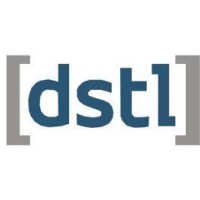Non-convex Optimisation and Matrix Factorisation
Featuring speakers from across the globe delving into Non-convex Optimisation and Matrix Factorisation, the second bi-annual London Workshop on Signal Processing Theory and Methods will take place on 13 and 14 September 2018 at Imperial College London. Join us for networking, learning and discussion with leading academic, industrial and research funding experts in the field.
DateS: 13-14 September 2018
Venue: Room 408, EEE Building, Imperial College London, South Kensington Campus (No. 16 on Campus Map)
Download the Programme
Speakers
Speakers
Timetable
| Thursday, 13 September 2018 | Friday, 14 September 2018 | |
|---|---|---|
|
|
|
| All activities take place in EE 408 unless otherwise indicated. | ||
Posters
- Xin Deng and Junjie Huang (with Pier Luigi Dragotti)
- Conghui Li and Shanxiang Lyu (with Cong Ling)
- Alastair Moore (with Patrick Naylor) and Patrick Naylor
- Panagiotis Barmpoutis (with Tania Stathaki)
- Mohamed Suliman and Maxime Ferreira Da Costa (with Wei Dai)
Registration
Registration has now closed.
The deadline for securing your place at the 2018 London Workshop on Non-convex Optimisation and Matrix Factorisation has now passed.
Special thanks to...
...our sponsors:

- Emeritus Professor Tony Constantinides for his kind and generous contribution worth £2,000.
- Contributions from research funds of organisers Dr Wei Dai, Professor Pier Luigi Dragotti and Dr Patrick Naylor.
...our event organisers (in alphabetical order):
- Melanie Albright
- Wei Dai
- Pier-Luigi Dragotti
- Christine Evers
- Cong Ling
- Patrick Naylor
...our volunteers (in alphabetical order):
- Cheng Cheng for receptionist work
- Maxime Ferreira Da Costa for photography
- Hengyan Liu for receptionist work
- Yang Lu for receptionist work
- Yifan Ran for receptionist work
- Jingyuan Xia for CIT support